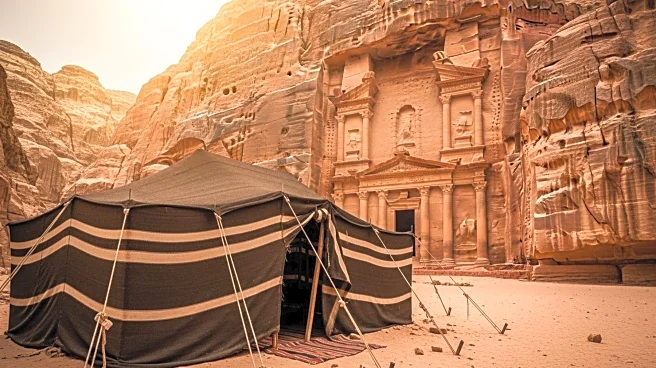What's Happening?
The Bedouin community in Petra, Jordan, is resisting eviction from their ancient cave homes due to a major development program aimed at enhancing the tourist experience at the world heritage site. The Bdoul community, which has lived in Petra's caves for about 200 years, faces displacement as authorities plan to build new facilities and regulate tourism. Human rights campaigners have called for a halt to the evictions, arguing that the Bdoul's cultural heritage is integral to Petra's significance. The Jordanian government contends that the Bdoul's presence is illegal and poses risks to the site's integrity.
Why It's Important?
The eviction of Petra's Bedouin community highlights tensions between heritage preservation and tourism development. The Bdoul's cultural practices and historical ties to the site are at risk, raising concerns about the loss of intangible cultural heritage. This situation underscores the challenges faced by indigenous communities worldwide in balancing development with cultural preservation. The outcome of this conflict could set precedents for how heritage sites are managed and the rights of local communities are respected.
What's Next?
The Jordanian authorities are expected to continue negotiations with the Bdoul community, offering alternative housing and livelihoods. International human rights organizations may increase pressure on the government to find a solution that respects the Bdoul's cultural heritage. The development plans for Petra will likely proceed, but the extent to which they accommodate the Bdoul's needs remains uncertain.
Beyond the Headlines
The eviction of the Bdoul community raises ethical questions about the prioritization of economic interests over cultural preservation. It also highlights the need for inclusive development strategies that consider the rights and traditions of local communities. The situation in Petra may prompt broader discussions on sustainable tourism and the protection of cultural heritage.









